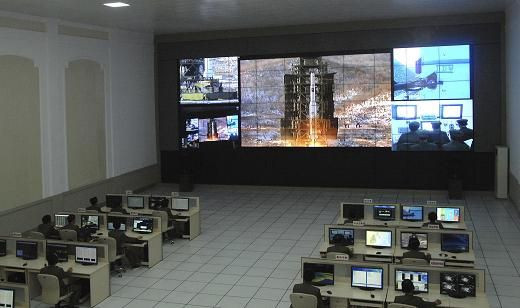South Korea And Japan Push For Tougher Sanctions on Nuclear North Korea -- Does China Agree?

North Korea’s most recent nuclear test has received a lot of international opposition. Aside from China, the North’s largest ally, condemning the tests, other nations have banded together to push for tougher sanctions on the closed-off state.
Most recently, leaders of Japan and South Korea have pledged to impose sanctions on Pyongyang after its third nuclear test, which occurred Monday. According to Voice of America, Japanese officials have confirmed that Japanese Prime Minister Shinzo Abe and South Korean President Lee Myung-bak spoke on the phone on Wednesday, discussing their plans to stop North Korea’s development of nuclear weapons. Japanese officials also said the two Asian nations will coordinate with the U.S. to deal with North Korea’s nuclear plans.
The newfound closeness between South Korea and Japan may come as a surprise to some, as the two governments have been in their own tug-of-war over disputed islands known to Koreans as Dokdo and Takeshima to the Japanese. The islands have been held by South Korea since the 1950s but are now being claimed by Japan.
Speaking in a parliamentary meeting, Japan’s Foreign Minister Fumio Kishida expressed concern about future nuclear tests from North Korea. Kishida told parliament that Japan would continue to keep a close eye on North Korea, noting that relations with Beijing would also be beneficial in order to collect information on the North’s progress.
China, which typically sides with the reclusive country regarding sanctions, has spoken out strongly against nuclear testing. After North Korean Central News Agency announced the success of the nuclear device, China’s Foreign Minister Yang Jiechi expressed strong opposition. Yang released a statement on the ministry website, saying the nation was “strongly dissatisfied and resolutely opposed” to the tests and urged the North to “return to the right course of dialogue and consultation as soon as possible.”
In the past, China has supported North Korea with natural resources, helped the isolated nation during times of famine and frequently used its veto power as a permanent member at the United Nations Security Council to block resolutions imposing sanctions.
It seems now that China’s citizens are also less than pleased with North Korea, whose nuclear test took place on the Chinese-North Korean border.
China’s netizens on the Twitter-like microblogging platform Weibo are wondering if the government’s unusually unsupportive stance is sign of a future in which Beijing may join Japan and South Korea and push for tougher sanctions.
“I wonder if our government will do anything specific in response or to sanction North Korea’s dictator, other than protesting. If nurturing a tiger is to invite calamity, what about nurturing a mad dog?” a user posted.
“There’s one thing I simply cannot figure out. Big Brother China gives rice, oil, money, guns and gets beat up all day long wiping this Little Brother’s butt in the international community, yet North Korea chooses the China-North Korean border for its nuclear test, threatening the Chinese people in northeastern China,” another user complained.
Yu Jianrong, a director at the Chinese Academy of Social Sciences, said the timing of the test was also inconsiderate to China, in the midst of its Lunar New Year extended break.
“If you pursue an unjust long-term diplomacy policy, then people will dare to explode a stink bomb at your door while you are on holiday; you are inviting your own humiliation,” Yu posted on Weibo about North Korea’s ill-timed test.
© Copyright IBTimes 2024. All rights reserved.





















